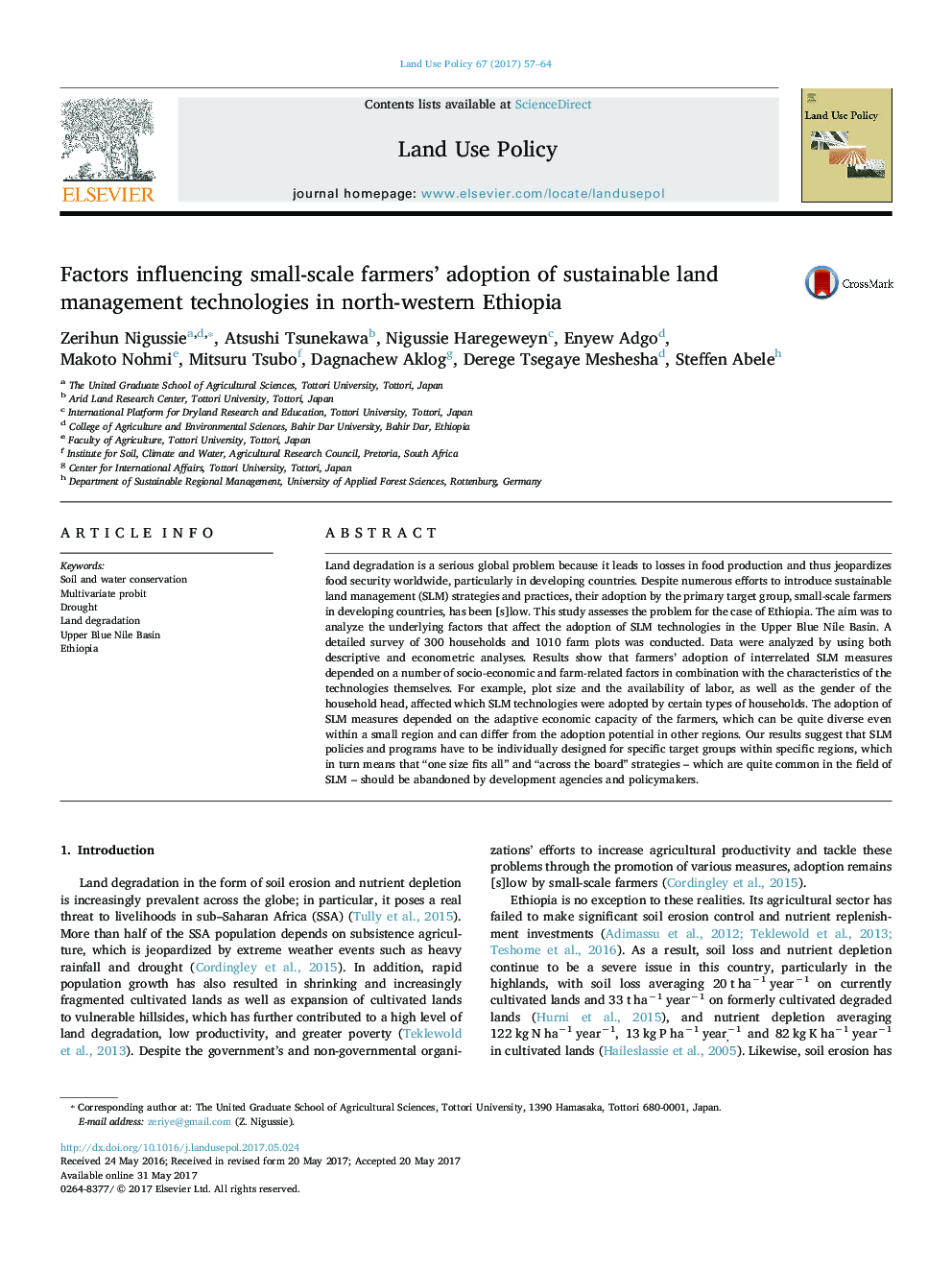| کد مقاله | کد نشریه | سال انتشار | مقاله انگلیسی | نسخه تمام متن |
|---|---|---|---|---|
| 6460634 | 1421816 | 2017 | 8 صفحه PDF | دانلود رایگان |
- Sustainable land management investments are required to alleviate land degradation problem in sub-Saharan Africa.
- Uptake of sustainable land management technologies was dependent on households' adaptive economic capacity.
- Improvement in existing sustainable land management extension targeting may help to address heterogeneity in household and plot characteristics.
Land degradation is a serious global problem because it leads to losses in food production and thus jeopardizes food security worldwide, particularly in developing countries. Despite numerous efforts to introduce sustainable land management (SLM) strategies and practices, their adoption by the primary target group, small-scale farmers in developing countries, has been [s]low. This study assesses the problem for the case of Ethiopia. The aim was to analyze the underlying factors that affect the adoption of SLM technologies in the Upper Blue Nile Basin. A detailed survey of 300 households and 1010 farm plots was conducted. Data were analyzed by using both descriptive and econometric analyses. Results show that farmers' adoption of interrelated SLM measures depended on a number of socio-economic and farm-related factors in combination with the characteristics of the technologies themselves. For example, plot size and the availability of labor, as well as the gender of the household head, affected which SLM technologies were adopted by certain types of households. The adoption of SLM measures depended on the adaptive economic capacity of the farmers, which can be quite diverse even within a small region and can differ from the adoption potential in other regions. Our results suggest that SLM policies and programs have to be individually designed for specific target groups within specific regions, which in turn means that “one size fits all” and “across the board” strategies - which are quite common in the field of SLM - should be abandoned by development agencies and policymakers.
Journal: Land Use Policy - Volume 67, September 2017, Pages 57-64
